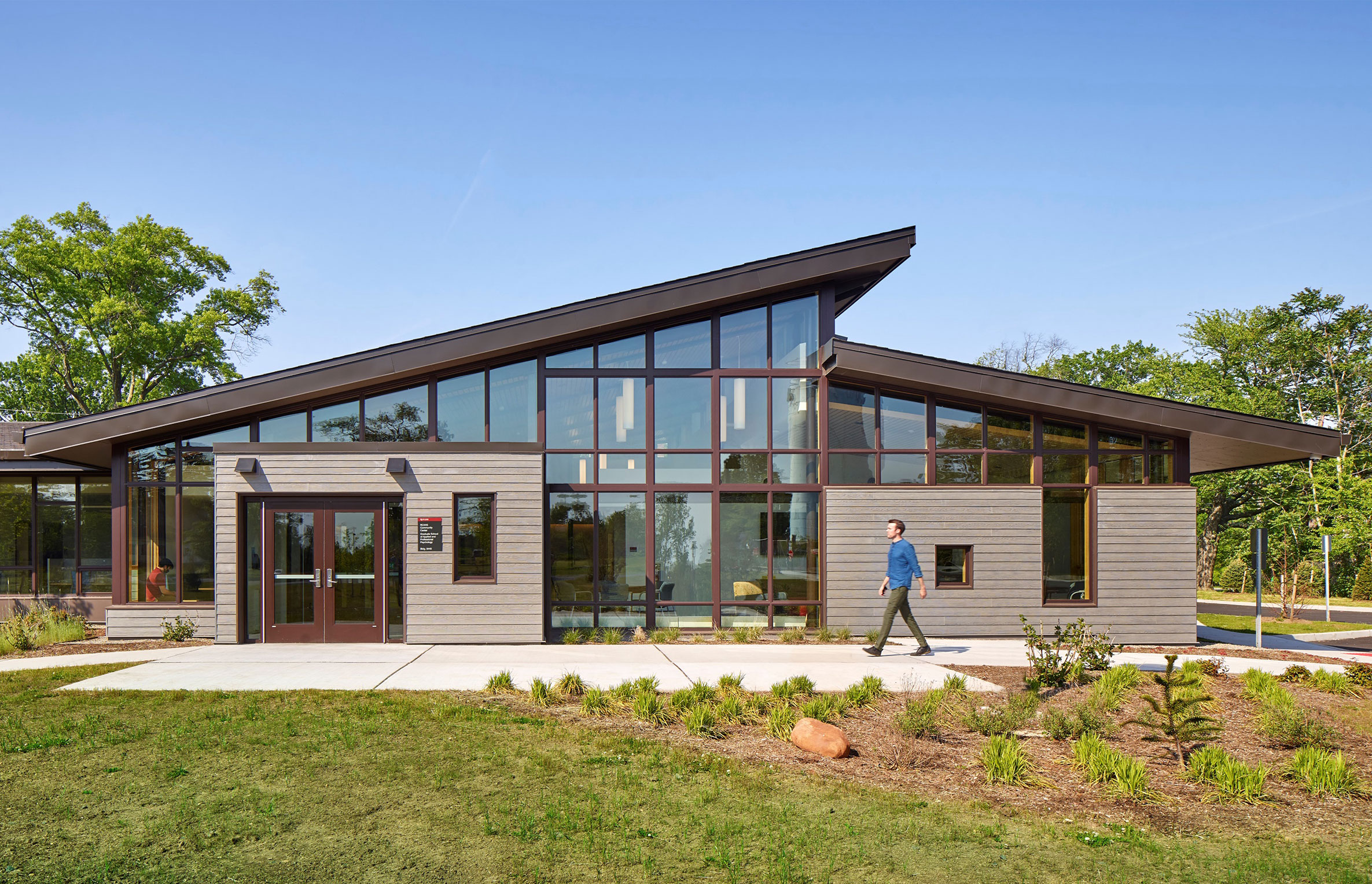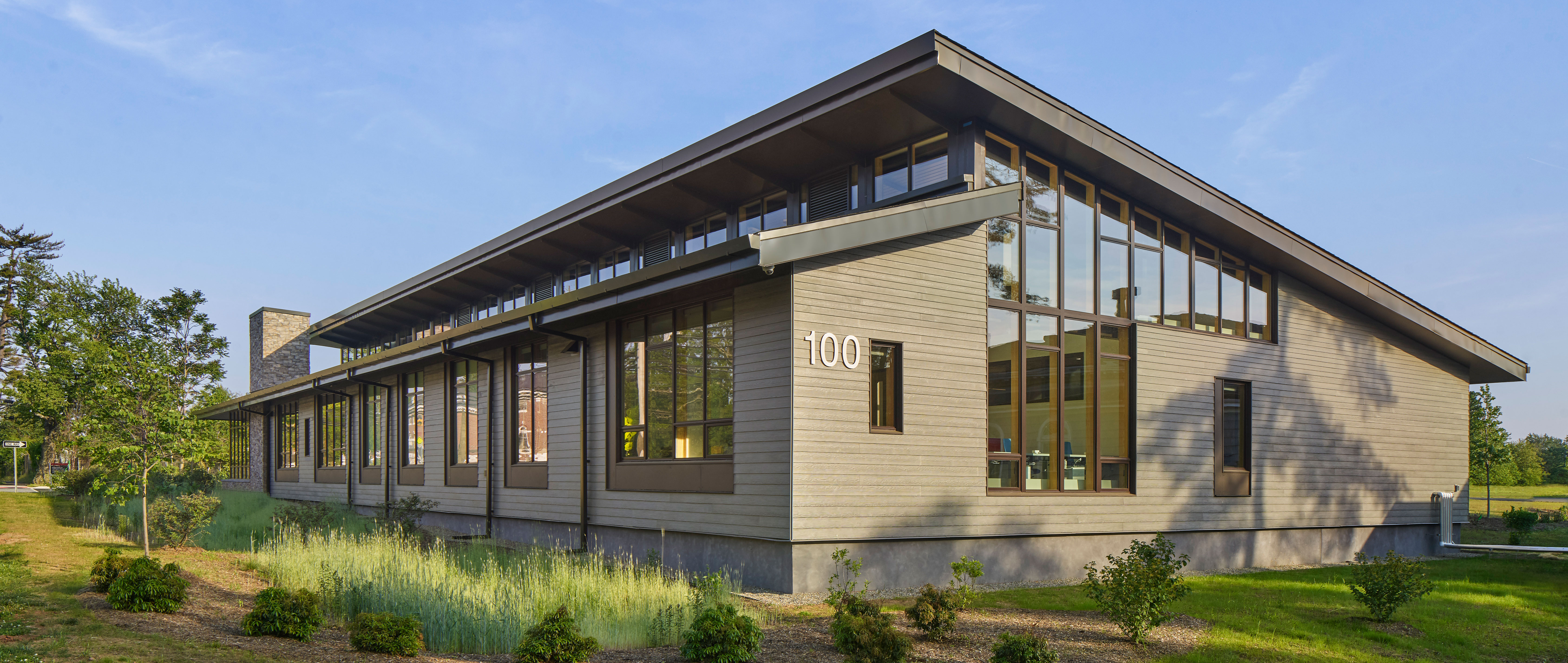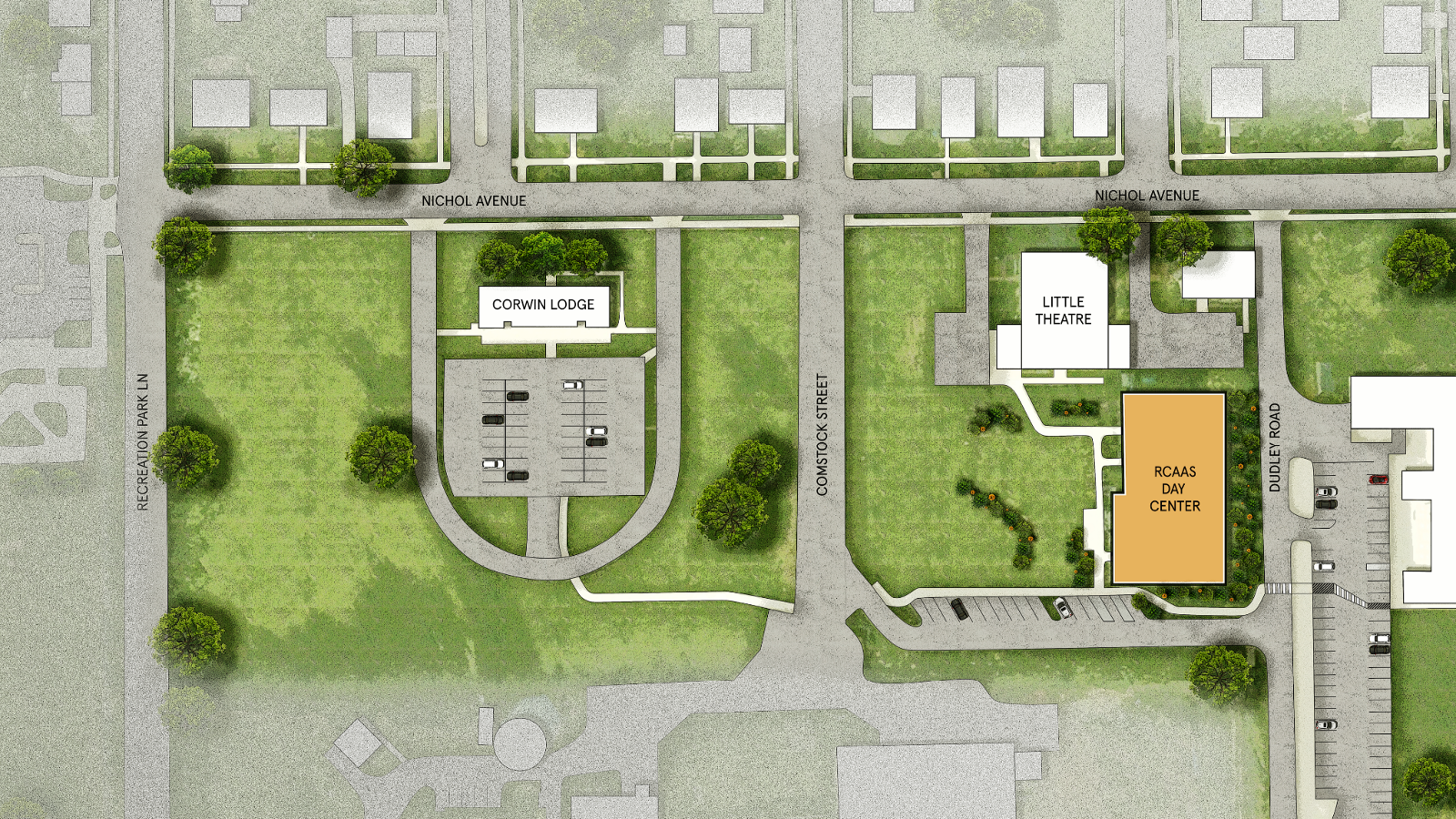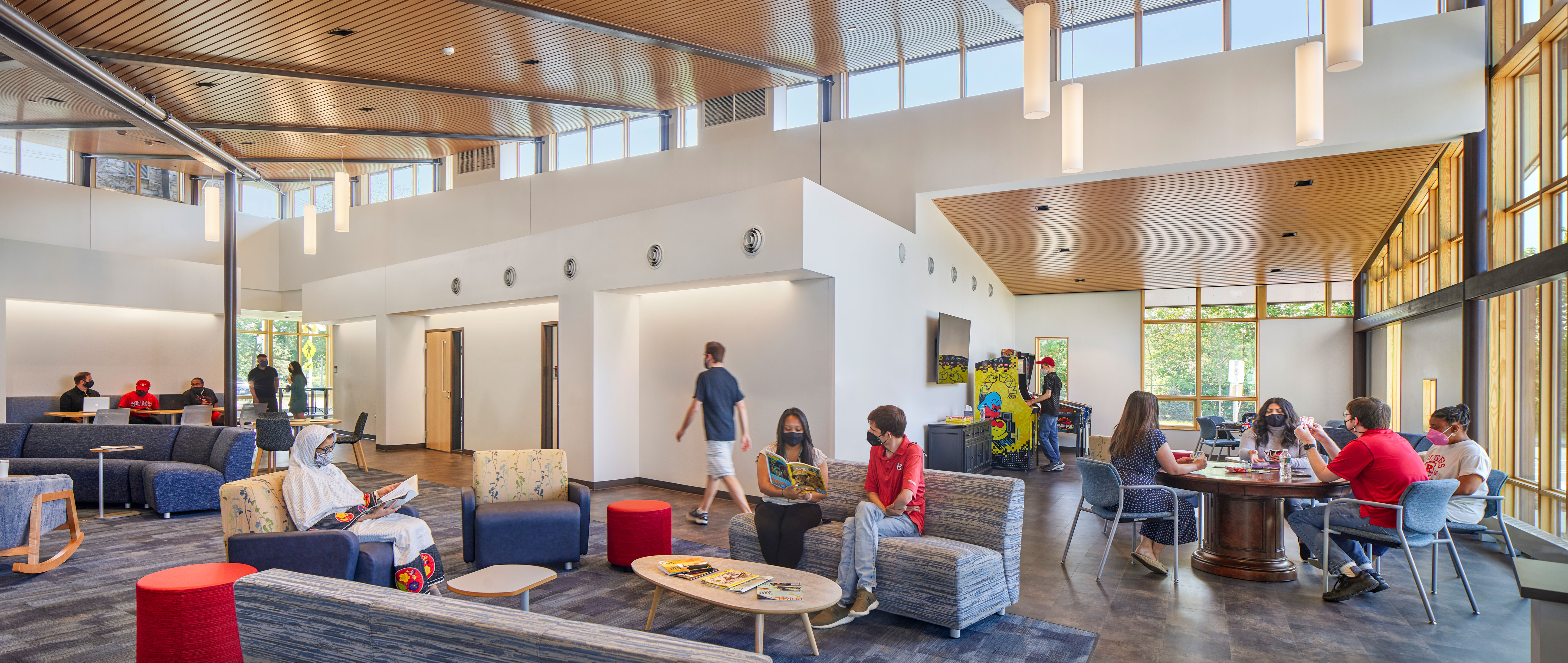Search

With New Jersey’s rate of Autism among the highest in the country, there are woefully few services for autistic adults to enrich their lives, learn to navigate life’s challenges, and provide life skills training, clinical needs, and education all in one place. This is the goal of Rutgers Center for Adult Autism Services (RCAAS), and designing a functional space for neurodivergent individuals is key to achieving these goals.
Recently IP&O’s Planning, Development, and Design (PD+D) group teamed up with RCAAS at the national Society for College and University Planning (SCUP) annual conference to discuss designing spaces for the neurodivergent community, specifically the RCASS.
Dr. Christopher Manente, Executive Director, RCAAS, was joined by IP&O’s Vice President and University Architect, David Schulz, and Mayva Donnon, Partner KSS Architects LLP.
The presentation—Integrated Programing and Human-centric Design for Student Neurodiversity—focused on the genesis of the RCAAS program, how educational institutions can accommodate adults with autism, and how human-centric design promotes inclusivity and wellness.

Manente opened the presentation with a passionate description of how difficult life can be for adults with autism, noting that there are very few resources for people with autism once they pass their 21st birthday. The audience was shocked to hear the depressing statistics regarding quality and length of life for many adults with autism. This underscored the importance of the unique development that Rutgers has successfully undertaken.
Schulz, who heads IP&O’s PD+D group, focused on the design elements of the RCAAS center located on the Rutgers Cook Campus. Designing a physical space for the neurodivergent population had to include a number of physical and psychological safety elements; attention restoration, which is the idea that exposure to nature restores attention, energy, and wellbeing; and community engagement had to be nearby while avoiding community overload.

Schulz explained that for the neurodivergent community this may mean proximity of an active community without being immersed in it, as well as places for the neurodivergent population to gather comfortably. Schulz provided context for choosing the parcel on which the RCASS is located, such as proximity to mass transportation and amenities including food services, libraries, and shopping.
The final outcome of the RCAAS center, Schulz noted, is a building with large sunlit windows which brings nature indoors, comfortable and functional gathering places, as well as clinical areas designed for maximum safety and benefit for those engaged in clinical care.
“It was my pleasure to join my Rutgers colleague Dr. Christopher Manente and KSS Architects partner Mayva Donnon to present at SCUP National. Rutgers is doing incredible work serving adults with autism, and I’m glad the Rutgers Institutional Planning and Operations team was part of the project,” Schulz said. He added, “And, I’ve said it before and I will say it again: while the buildings we develop are great, it is the activities that occur within the walls of those buildings that are most important and impactful.”
RCAAS offers adults on the autism spectrum one-of-a-kind support programs that make an independent and fulfilling life possible.
Simultaneously, it advances research and ensures that each year, program graduates leave Rutgers prepared to enter careers in support of this underserved population. The division of Institutional Planning and Operations is a key partner of RCASS, with shared employment opportunities, training, and support activities coordinated between the division and the Center.


